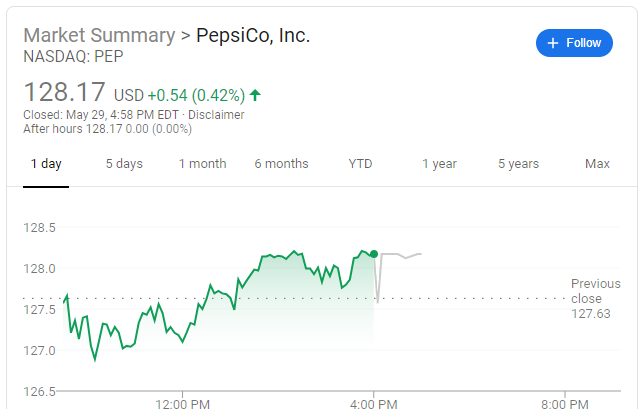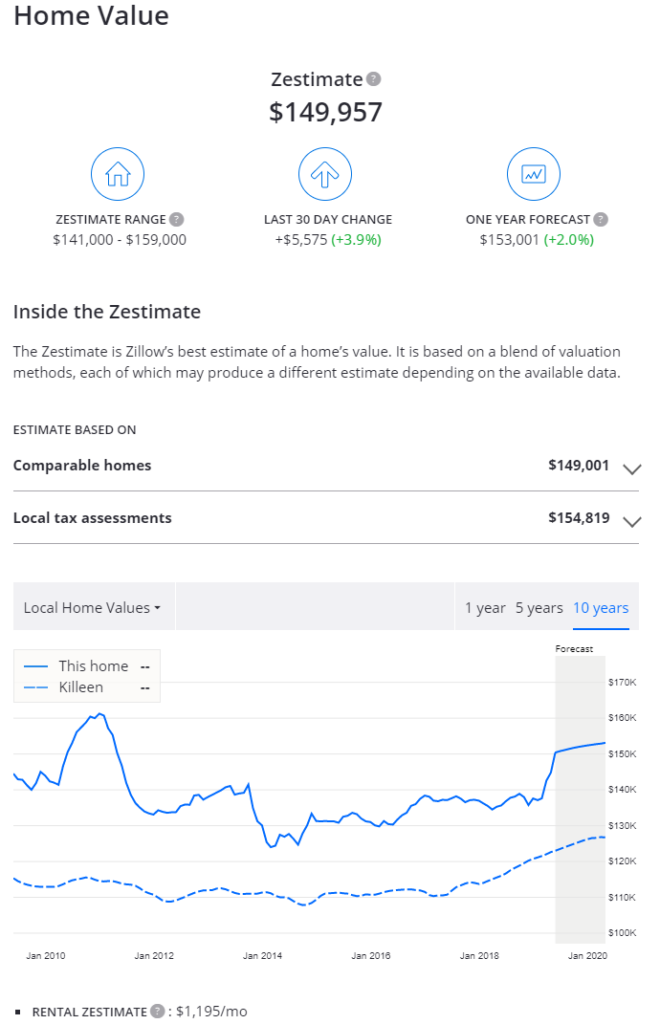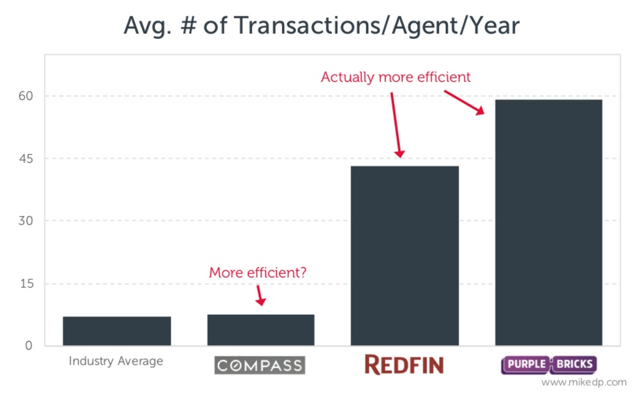The Future of Real Estate Agents in 2020 and Beyond
In 2005 the travel agent agency was swept away almost entirely by upstarts like Expedia (who is now getting swept away by Google). Real estate agents were next, so we were told.
It’s been constant predictions of doom for the agent, followed by….well, not doom.
The increase in real estate capital in the past few years, however, has lead some to think this time is different. This time, there is enough money to really make changes. Is that the case, or is this just more dumb money with nowhere else to go after a historically long bull market, waiting to get snuffed out at the next mild downturn?

Real estate is definitely changing! While not disrupted in ways people may have imagined in 2005, real estate is not the same that it was then. MLSs have rapidly shrunk in number. IDX websites have proliferated at the same time the portals took their stranglehold on search. The RESO data dictionary efforts promise a scintillating new world of big data. The ground is shifting with many small earthquakes if not a single, devastating one (thankfully!)
With the somewhat acrimonious launch of Redfin Direct, there is more buzz in the industry about the future of buyer agents in particular.
Is it possible their value in the transaction is being devalued by consumers? Is Redfin right that buyers may be willing to forgo representation? If the lawsuit against broker compensation offers on MLSs is successful, will buyers be willing (or able?) to pay for their own agents out of pocket? Could that lead to something more similar to a European model of buyer-agent-less buyers, open listings, and low commissions?
I have no idea what real estate is going to look like in ten years. But I am going to have some courage to put my thoughts on paper, just to revisit and laugh at myself in a few years time.
Please keep in mind, I thought texting was dumb when it first became a “thing”. “Why not just call the person?”, I thought. Needless to say, my thoughts on emerging technology are not gospel.
NOTE: My bio is available here including anything that might be considered a conflict of interest in what I am ruminating upon here.
The Purpose of the Real Estate Agent
To see what role the real estate agent will have in the future, we should look at what their role is now (and in the past). Then I’ll look at each role and consider what the prospects are for disruption. What could replace our role? And what might the agent’s role look like after the dust settles?
Rob Hahn wrote a post exploring the human vs machine elements of buying a home using data from Zillow’s Consumer Housing Trends Report in 2018. In Zillow’s report, it lists the elements of the transaction that consumers most value an agent’s services, including, in order or importance:
- Organizing and submitting the paperwork
- Leading private home tours
- Leading contract negotiations
- Guiding through the process
- Providing guidance on legal terminology and requirements
- Helping decide details of the offer
- Providing access to homes for sale that are not yet publicly listed
- Referring to a mortgage lender
- Referring to an inspector
- Identifying new homes to consider
- Previewing and/or screening homes
- Helping decide if a home is the right one
- Referring to a contractor for home improvements
I’m going to pick out a few broad categories regarding what agents do for their customers.
Search Properties For Sale
It used to be that the only way to even know what was for sale was to talk to a real estate agent.
And the only way they knew was by looking at the MLS book – a monthly or weekly book published by the local association. You went browsing homes in your broker’s office looking through a catalog like you were buying from Sears.
Well, that is all gone the way of the dodo bird (including buying from Sears).
Agents have almost completely lost control of the home search. Portals like Zillow disrupted that space, making for sale inventory transparent and easily accessible.
Agents’ own websites now have IDX or VOW feeds showing existing listings as well. Agents are no longer the gatekeepers of this information, as one major example of how agents have already lost some control.
The few John Connor resistance types include folks like HAR who manage to rank reasonably well for Texas property searches. Just about everyone else has been sent scurrying to produce hyperlocal content targeting long tail keywords and get out of Zillow and Move.com’s path.
Now, people do still like an agent’s help to “identifying new homes to consider” as well as information about properties not yet listed.
The latter is essentially describing pocket listings. I consider pocket listings an “information asymmetry” which is, in my opinion, an undesirable feature of real estate agents. Pocket listings are dumb and anti-consumer. I’ll probably write an entirely different post on how silly they are.
As for “help identifying new homes to consider”, I would put that under “advice”, which we’ll get to in a bit.
Conduct Market Analysis
Consider how you would answer the following questions:
How much is your house worth? How much is the house you are offering on worth?
Answer: Well, we can do a market analysis and in 24 hours I’ll let you know.
How much is a share of Pepsi Cola worth?
Answer: $128.17 as of this writing.
I didn’t have to ask a stock broker to find out. It’s just right there on Google.
Imagine if selling real estate were the same.
Rob Hahn (again) has talked about Zillow positioning itself as a “market maker”, and if Zillow or someone else succeeded, the “market analysis” function of agents would be mostly gone, too.
The U.S Securities and Exchange Commission defines “market maker” as a “firm that stands ready to buy and sell a particular stock on a regular and continuous basis at a publicly quoted price.”
In the stock market, when you go to purchase a security, you often are not buying directly from another investor but a market maker. The market maker bought the stock from the seller expecting an opportunity to sell to you. In the case of stocks, it happens so fast (and is mostly automated) that there is little risk to the market maker. They take a tiny chunk for themselves on each transaction. The purpose is to provide liquidity and transparency. They can also quote you a price they are buying/selling at, and there is (often) a willing buyer and seller and you aren’t sat around waiting for a buyer or seller.
Zillow, in particular, is not bashful about letting folks know that this is where they see themselves in the future. Look at this Google featured snippet of Pepsi’s stock.

And now compare it to the Zillow Zestimate….

Except, in the future, the Zestimate will be the actual price of the home because Zillow is an actual buyer and seller. A market maker.
It doesn’t have to be scary. It’s not as if market makers in Wall Street are all-powerful. They help bring liquidity and transparency to a market of many players, which is quite a bit different than owning the market. There are still stock brokers and roles for investors, consultants, financial advisors, and all those other services.
The market analysis component was not on the list of essential agent functions from Zillow. I have no idea why, but I think it’s a major value add of the agent. I’ve seen unrepresented buyer transactions in the MLS, always after the fact, and often identify them because the home sold far higher than surrounding comps suggest it should have and I’m digging in deeper to try to find out why.
Likewise, I’ve seen folks sell their home for too little because they were uninformed about the current market conditions and skipped on getting a market assessment or listing their home to get the most competitive offer.
Anyway, I believe within ten years, agents will no longer be significant components in pricing homes except for the most niche homes like rural, luxury, farm and ranch, and commercial transactions.
Manage the Transaction
Leading contract negotiations, guiding through the process, providing guidance on legal terminology and requirements, and helping decide details of the offer are all critical functions for real estate agents today.
But if you’ve already agreed on a house, and already agreed on a price, this role is not much more than a transaction manager.
Yes, you still have a fiduciary duty to the buyer or seller as an agent. But as transaction become faster and more automated, our role as navigator will likely diminish. Right now we are like Sherpas guiding our buyers and sellers up a steep mountain whose paths we’ve tread many times but is new to the buyer. But does anyone hire a Sherpas to walk to the corner bistro and back?
Combine the idea that the market maker system is likely to make buying and selling homes cheaper, consumers are likely to buy and sell homes more often. The result is more transactions and more consumers who have climbed that mountain before and are comfortable doing it again.
Transaction management will still be a very involved business, but I believe that it will mostly be handled by brokerages with dedicated transaction managers, iBuyers, or third party services that are cheaper than hiring an agent.
And I don’t think this is a bad thing for agents! How many agents got into the business because they love reading title commitments and making sure the amendment was DocuSigned removing a contingency? Probably close to zero. Most agents should be outsourcing this function already, in my opinion.
Give Advice as the Local Expert
Personally, the times I added the most value to a transaction was just small pieces of advice. Even just a sentence can be worth $10,000s to a buyer or seller.
For example, I recommended a buyer consider foreclosures. In my market, they are often in better condition than others, and in a flat market with high closing costs they’d appreciate the equity later when the sold. In their case, they did indeed move again in just two years, and managed to pocket $40,000 after transaction costs in a mild market and a $150,000 home.
It’s gonna be a while before anyone can automate that.
The more heterogeneous the product, the more likely a consumer is going to value some measure of advice. And nothing is more heterogeneous than hyperlocal real estate.
I see a role for agents as market experts for a long time to come. What that looks like (or what they can charge for it), when stripped away from all the other responsibilities, is a different story.
And again, I think this is probably great for agents! You get to do the thing you enjoy most! Advise buyers and sellers! You no longer have to worry about playing matchmaker for fickle customers, hyper analytical CMAs, or the drudgery plus occasional terror of shepherding a contract to closing.
The Great Squeeze
Now the bad news!
With the role of the agent splintered, we won’t need 2,000,000 of them.
Some estimates are that a more likely equilibrium would be about 250,000, or 1/8th the current number today.
The responsibilities of agents shrinking is one driver of that trend. But the other factor is the increasing productivity of top agents. Consider the following graph from Mike DelPrete writing for Seeking Alpha.

Now, these productivity gains courtesy of the salary model don’t translate into immediate success. Redfin’s growth has been legendarily lethargic, and Purplebricks looks like it’s been completely defeated on the American real estate battlefield.
But even among traditional brokerages, I think there will be more segmentation as agents niche into their skills, brokers provide more tools and services like in a BaaS model (brokerage as a service), and the mega team trend continues to improve efficiencies.
The result is just a lot lower demand for agents.
But even that is not Armageddon for today’s crop of real estate agents!
These companies and teams and brokerages are going to be hiring. Pricing teams, service reps, managers, tech positions, transaction managers, and all sorts of stuff real estate! Just because you might not be an independent contractor doesn’t mean there isn’t a seat for you in the real estate world of tomorrow. I think there may indeed still be 2,000,000 real estate roles in ten years time, just not in the positions they are today.
It is, however, Armageddon for someone. The National Association of Realtors. A 1/8 drop in Realtors means a 1/8 drop in dues paying members. Sure, NAR makes money elsewhere. But I think this will be a major turning point for the trade association and its influence within the industry will significantly be on the wane in the next ten years.
That’s to say nothing of the MLS disruption I think will also take place in that time. I think the MLS system will change significantly in the next ten years, decoupling from association control, and cutting out NAR’s best incentive for membership.
More on What That Could Look Like
What happens when the only thing your consumer needs you for is advice?
Well, lets look at other service industries for whom a major role is giving advice.
Lawyers come to mind.
Some classes of physicians like psychiatrists.
Financial advisors. Marketing and branding companies. Consultants. Publishers.
That’s some pretty good company to keep, I think.
Outside of working for one of the disrupters above, I am trying to think up some business models that could proliferate in this Brave New World. I’m just brainstorming, here, so no judgment, please.
Relocation Counselors
Moving to a new area? You can search, buy, and do all that stuff without an agent. But you still want to know the scoop and bounce your ideas off of a local resource who knows what they are doing. Imagine paying a flat fee to access premium website content like local guides, forums, and one-on-one consultations, paid by the hour.
What if your lender, or the “market maker” provided these services as part of their package? As soon as a homebuyer signs up they have a salaried or affiliated resource who spends a few hours with them to talk about their needs, the new area they’re moving to, and what to look for and expect in a home. You, real estate agent, could be that person.
Affiliate Marketing
Or maybe you could give that information away for free on a content site. Like your website already, you could produce high quality local content with your own flavor and brand that is engaging and resourceful at the same time.
But for free? How would you make money from that?
Affiliate marketing, native advertising, and numerous other ways that publishers are able to monetize their content. The most successful are very lucrative, low overhead businesses that are scalable and often flexible work hours and even locations. Becoming a full time content creator also lends itself to the next model:
Local Celebrities
There is one category of real estate agent that I think will be undisruptable for the foreseeable future: social influencers. People will pay for a well built brand. They will pay for authenticty. Or, if not the consumers themselves, other producers will pay you for access to your audience.
I don’t see the fruits of building an audience dissipating at all in the future. Quite the opposite, I am hopeful that new technology will make it easier for outgoing and people-spirited agents to connect and engage their audience.
If you can fashion yourelf into a local influencer, you will do just fine, I believe!
iBuyer Intermediaries
Mike DelPrete just published a short and sweet few pointers on how agents can stay relevant in the age of iBuyers.
One alternative way is to join them.
For the big folks, that might mean literally teaming up with folks like Opendoor and Zillow as partner agents in the markets they operate in. But there is another way, like the service this Houston brokerage is offering.

HoustonProperties.com has a massive how-to guide related to soliciting offers from iBuyers. They offer pointers on how to get the best offer from iBuyers, and even offer a service to prepare and submit your home to multiple iBuyers for you.
Then, in the cases when the iBuyer route is not a great fit, I am sure they are eager to step in with their own CMA and listing details and list your home traditionally!
I don’t know how rewarding this program is, but I’ve seen others like it popping up in markets where the iBuyers are the most active.
The Future of Real Estate Tech Vendors
The iBuyer future is not uncertain just for real estate agents. The vendors that thrive off of real estate agents have some important questions to ask themselves, too.
Consolidation means fewer customers and bigger budgets. The discount vendors that thrive on volume of customers may have to adjust their business models significantly. There will be a squeeze that will favor products that can appeal to teams, brokers, and organizations.
Vendors who previously thrived on low dollar products and tried to cut deals with NAR to gain high volume and low margin access to lots of customers will fall out in favor of more bespoke services.
It’s possible I’m wrong, though!
Conclusion
I’m just a dude!
I don’t know anything special and I have a day job.
I’m putting it all out there to be laughed at or whatever you like. I have thick skin. But I enjoy sharing my thoughts and am very curious to hear more from you on what you see in five to ten years! Comment below!



Oh My God, Seriously that was a great blog. but Brain i really have to congratulate you for doing this. seriously i wounder how many days you spent in collecting all those insights before sharing your thought here.
The insights that you have shared on the blog can be dated to users or agents until 2025.
We’ll find out!
Interesting ideas. I got my license a few years ago and was immediately confronted and intrigued by Redfin. My broker knew next to nothing about it. I thought it was a game changer. These data driven companies are definitely keeping me up at night!
I wouldn’t worry too much about “data driven” companies. The reality is that real estate data is still in its infant stages. It will be many years before the data is more insightful than what a top 10% agent can deliver. If you can be a top 10% agent, then you will be fine for the foreseeable future, in my opinion. Probably even top 20%.
Amazing piece right here. Had my mind blown away
Hi Brian (or is it Brain? lol), this is a good, thought-provoking article. Is it permissible to share it?
Not sure it’s shareworthy but of course! It’s a free country!